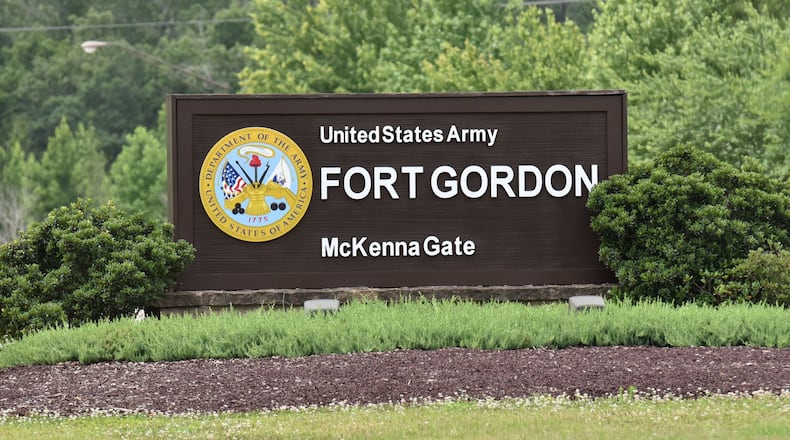WASHINGTON — The annual defense policy bill has six decades of success becoming law, but 2020 politics could end the streak. Georgia’s two U.S. Senate runoffs, which will determine if Republicans maintain control of the Chamber, are further complicating an already tense debate that centers on bases named after Confederate generals.
This year’s version of the National Defense Authorization Act has a provision that would require military bases named after Confederates to start the renaming process. In Georgia, that affects both Fort Benning near Columbus and Fort Gordon outside of Augusta.
Although some Republicans balked at the language, it received bipartisan support this summer and is currently in both the House and Senate versions of the bill. However, President Donald Trump has threatened to veto the measure if this provision remains. With time running out, House and Senate negotiators must now come up with a final version to send to Trump.
Georgia Sens. David Perdue and Kelly Loeffler both voted in favor of the NDAA with the renaming language, but Loeffler said she didn’t approve of that provision and wanted it removed.
If they must vote again before their Jan. 5 runoff, there will be pressure to side with Trump and decline supporting the NDAA if the base renaming provision remains.
But that also would mean supporting temporary fixes while Congress starts from scratch on a new NDAA. Not only would that mean an end to the long streak of avoiding such partisanship with national defense but the uncertainty that comes with temporary fixes.
Democrats won’t make it easy. House Speaker Nancy Pelosi said Wednesday that removing the base renaming language is a non-starter.
“This summer, the House and Senate on a bipartisan basis passed NDAAs with provisions to begin the process of changing the names of military bases and infrastructure named after individuals who served in the Confederacy,” she said in a statement. “It is imperative that the conference report include provisions that secure this essential priority. Our bases should reflect our highest ideals as Americans.”
Various D.C. publications have mentioned the effect the Georgia runoffs are having on the bill, which was already delayed until after the general election. At the time, no one predicted that the balance of power in Washington would depend on these two Senate seats and what happens in January.
Congressman Mac Thornberry, the top-ranking Republican on the Armed Services Committee, said there is some conversation about holding off on a new NDAA until after the runoff.
Rep. Mac Thornberry of Texas told reporters Tuesday that House and Senate negotiators are making progress writing a final NDAA for fiscal 2021. But he said outstanding political variables “above our pay grade," led by the Senate runoff elections in Georgia on Jan. 5, have some in Congress favoring delaying the NDAA into 2021 rather than dealing now with difficult questions such as the Confederate base names.
But Thornberry also mused that Democrats may be pressured to remove the base renaming language and allow incoming President Joe Biden to tackle the issue himself.
“I am concerned that, especially with the Georgia runoffs, that political considerations on really an issue that doesn't significantly affect the ability of the country to defend itself could take precedence over all of the things that do affect the ability of the country to protect itself," Thornberry said. “And, just to say what everybody knows, the incoming Biden administration is going to deal with the base naming issues anyway."
Georgia Congressman Austin Scott, who also serves on the Armed Services Committee, was chosen for the conference committee. His statement Wednesday night did not mention the base renaming provision among his priorities for the bill, whether to remove or keep.
About the Author
The Latest
Featured




